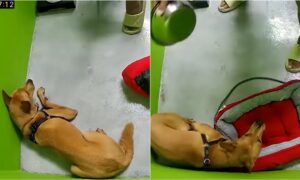“This post contains affiliate links, and I will be compensated if you make a purchase after clicking on my links.”
Your pooch is a well-trained and obedient dog without any negative behavior problems — so you have it made. Let me ask you a question though: does it take a treat as a reward to get him to act like such a gentleman? If so, we should re-educate the dog with vocal and physical gestures for good canine socialization training, motivating him to act this way.
Canine Socialization Training
If you have owned the dog long enough to already know his behavior tendencies and preferences, the use of this type of canine socialization training without treats to make him respond is going to progress at a faster pace than starting from scratch with a dog you are unfamiliar with. Let me back up a second and explain what we are trying to achieve here. Basically, we want our dog to respond with positive behavior through the use of OUR voice, behavior, touch, eye contact, movements, and body language instead of resorting to “bribing” him with treats so he behaves in the manner we want. This is further described in the following excerpt from a Wikipedia.org article:
The most successful form of training combines positive reinforcement (follow a desired behavior with something worthwhile to the animal and the behavior will increase) with negative punishment (withdraw something the animal wants when it performs undesirable behaviors). Other trainers may rely on positive punishment (follow an undesirable behavior with a punishment to reduce the rate of the behavior) and negative reinforcement (withdraw an undesirable stimulus when the animal performs the desirable behavior).
Canine social training without treats is actually what most dogs are going to respond to very enthusiastically, because they can differentiate that you are truly interested in them, and not just tossing a treat their way and then clicking on the TV. Dogs are very social animals and they want to know and need to know that they are a part of your life and family just as much as your children do. Maybe even more so for some breeds who are naturally high-stung and temperamental.
Try using these new methods for your behavior and approach to your dog and see if there is not a vast difference in how the dog and your family relate to each other. This type of canine social training instead of treats method will work, and you can always add in his special treat occasionally.
Is your dog “hooked on treats as a reward for good behavior? Below you can share your thoughts and additional tips.














